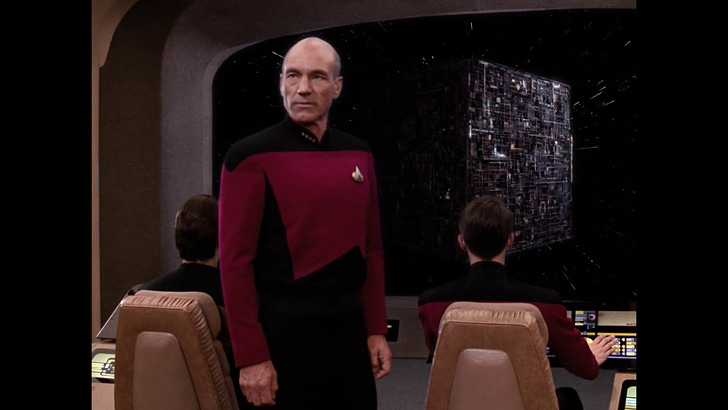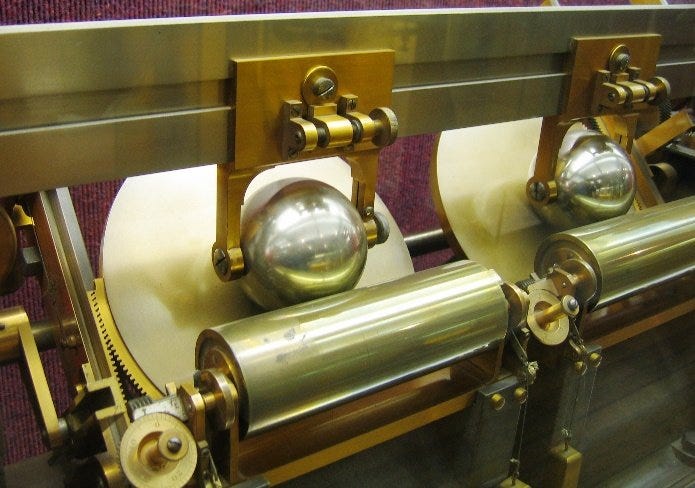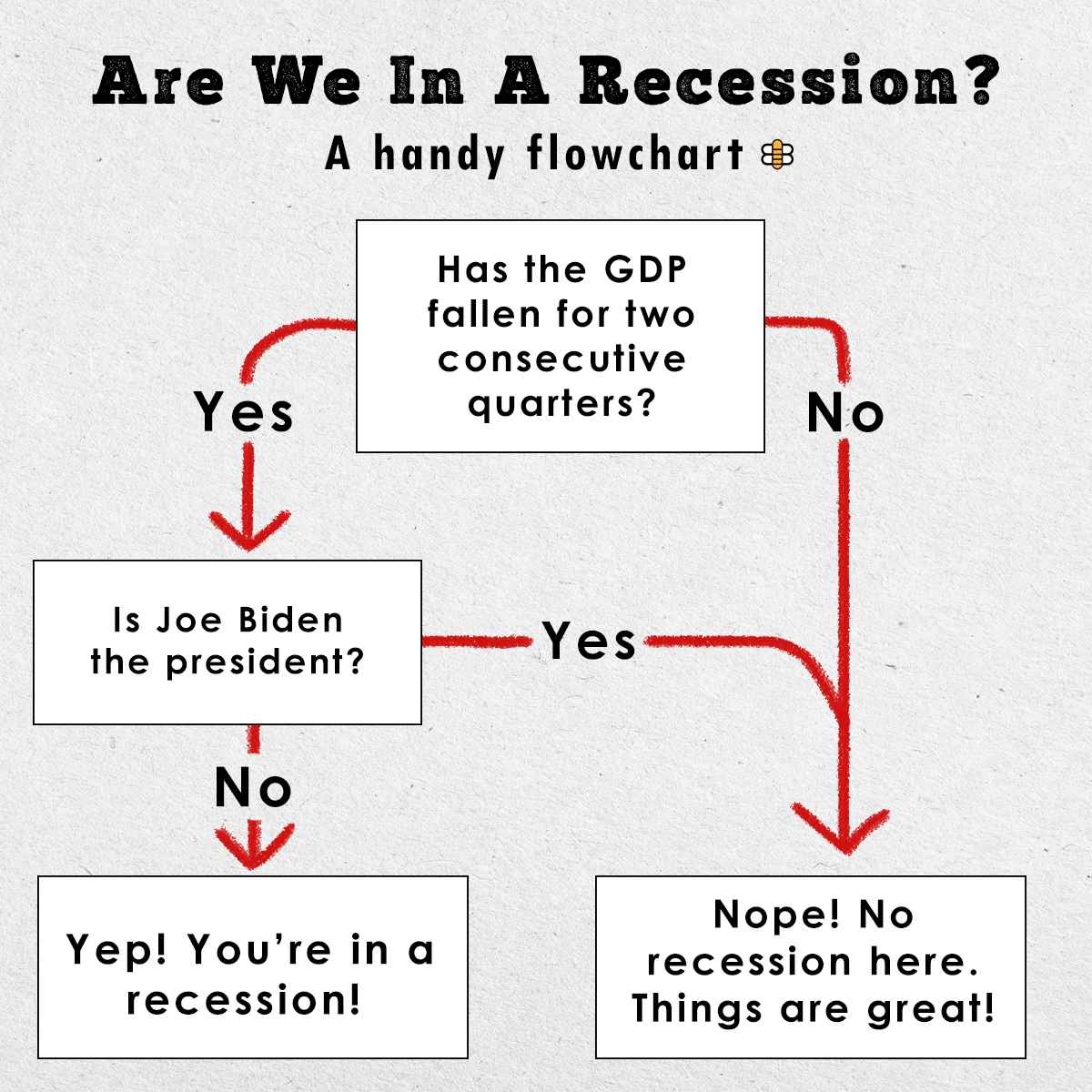I am very interested in science and math. I sometimes watch YouTube videos on various subjects, from the Riemann Conjecture to Godel’s Incompleteness Theorem to nuclear fusion (which is not to be confused with fission).
One of the best and most well made channels I follow is called Veritasium. It is about various things technology, math and science related. One thing that has always bothered me about the channel is that he has accepted Artificial Intelligence and Machine Learning as being something viable, and not just terms made by weird geeks.
A pair of his videos stood out to me especially, not because of the arguments that were made for it, but because the concepts themselves prove the ideas false.
If you have been paying attention to any of the “techno-bloggers” that Rush Limbaugh would speak of so affectionately, you would have noticed terms like “AI”, “Machine Learning”, and “Metaverse”.
The common theme has been that robots will one day become smarter than us. You might envision this scene from this extremely boring movie:
This, though, has not confined itself to weird geeks. It is now an accepted fact in the world (it would seem—I may be wrong—if so, correct me) that robots will become as smart (nay, smarter) than humans. Why is this not the case?
To answer this question, we have to go to the very dawn of computing, computers, and how they work.
I will say, I am not *biased* by knowing how to program, etc. etc.1 But I do have an interest in technology. I have for years followed the latest things in the tech world. Don’t listen to me about anything concerning actual technology. Don’t ask me to build a firewall. I have an opinion, though, on what computers can and can’t do. My interest in math and science helps. Please bear with me.
And now…
What are computers?
We use the word computer all the time, but do we actually know what it means? What is a computer? What are computers and what aren’t? How do computers work? To do this, we need to go back to the first computers.

Analog Computers
If you have ever looked at a clock, you may not know it, but you are looking at a computer. This type of computer is called analog. An analog computer is continuous. This means that it is constantly making calculations, just like a clock. Furthermore, the computer (clock) is a mimic of the thing it is representing. When an hour passes, the clock moves at the same pace. Derek from Veritasium explains the difference between analog computer and digital computers (the one that you are reading this article on now):
The whole video is about half an hour. The part that I am referring to is a few minutes. Stop when he starts talking about Tides.
This video above is an example of the two types of computer. They do not have any electronic capabilities, but each computer computes. Both type of computers can be made more and more complicated to do more and more complicated things. The mechanical analog computers have been modified to take integrals (which is some calculus stuff that I might try explain here2). Derek also explains how this type of analog computer works in the video.
The analog computer, as mentioned above, has the drawback of being continuous. This means that the results are going to be off by a tiny fraction, a decimal buried way down in the measuring, because with this sort of machine, you can never be exactly exact. For example, your hero is about 6 feet tall. More accurately, he is about 5’ 11.25”3. If someone were to get an atomic measuring stick, he might be found to be 5’ 11.2720810495158904606085462499856598” tall. We can never know for sure. The number that is my actual height would stretch to infinity, like the number π. Since the ball on the plate above can never be in exactly the same position every time, the answer is always going to be off.
Digital Computers
This lack of specificity is why the digital computers have taken over. They run on logical chains, with zeros and ones. The below video is a great example of a digital computer using dominos:
What a digital computer basically does is set up a series of logical gates, almost like one of those flow charts that show you things like:
These logical gates are traced on pieces of silicon using metal. Computer Code is written to tell a piece of silicon with metal (a processor) what to do or more specifically what the electric current should do. This set of instructions is written in a coding language, like C++, and is “translated” into a series of zeros and one (binary) by another program.
The idea of code, that is, a language based on mathematical notation, was put forth by Kurt Godel in his Incompleteness Theorem, where he proved a mathematical system cannot prove itself.
Another mathematician, Alan Turing, made what is considered one of the first modern computers (the Bombe machine). He also came up with the idea of a computer that would eventually execute any program, from addition problem to a YouTube algorithm (of course, YouTube did not exist then). This idea of a computer back in “olden days” was referred to as a Turing Machine. Every good computer (or program or game, etc.) is like a Turing Machine.
Turing was able to prove, through some reasoning, that this machine could not predict its own outcome: whether it would go into a loop or finish the program and “HALT”. You could not write a program that would tell you if that program were to run. Therefore, you will never be completely sure.
For example, take the Twin Prime Conjecture (that there will always be times that you will find prime numbers that are only separated by an addition of 2). If a Turing Machine could tell us its outcome, whether it finds twin prime forever or not, then we could write a program to check for twin prime.
Since we cannot build such a machine (since it would inevitably contradict itself), we can not say that math is decidable. There will never be an all-powerful computer, because the laws that computers run on are not applicable to “all-power”.
Summing this up…
Computers, then are what the name implies: compute-rs. They cannot think, they never could write themselves, for computers cannot predict the outcome of their actions. It is physically and technologically impossible.
This is what surprises me, that Derek makes videos like his one about the Flaw of Math, and shows the holes in places that make the idea of “real artificial intelligence” (if that makes any sense) as being ludicrous.
You could break down a computer into just its “Turing Machine” components, that do the bare necessity. You might say that the processor is the real part of the computer, the “computerish” part. You see a string of dominos still qualifies as a computer
But man is his own bare necessity. You cannot take a leg or a finger and say that this is what man is. The brain is only part, made whole by the addition of legs and arms and chest and back. Your eyes might be quite important, but they cannot stand alone as you. It is like St. Paul’s Letter to the Corinthians, where he talks about one body, and many members.
This has to be balanced with the fact that Man also has a soul. If he didn’t he wouldn’t be anything but the lump of flesh some people claim he is.
I would be interested to hear Derek’s thoughts on this.
And now, to the other side of the argument, made by Chesterton…
Computers will never take over, they are too rational
This may sound like a paradox to you, which may make sense when I tell you I got it from Chesterton, or at least was influenced by Chesterton.
Computers run on fully logical systems. Kurt Godel basically created computer coding language using the symbolic logics for his theorem. If you mistype the operations into your calculator, you will get a SYNTAX ERROR answer. Anyone who has had to use these for complex math equations will feel physical pain when thy see that.
In order for a computer to be greater than a man, it will have to overcome man. In all respects. Physical, mental, and spiritual. Most of all, it will have to overcome the irrationality of man.
Because man is irrational. Man is irrational enough to do something he cannot do. Man is foolhardy enough to think that he might be something more than himself, more than the sum of his parts, more than a highly sophisticated fleshy machine:
The modern world, when it praises its little Caesars, talks of being strong and brave: but it does not seem to see the eternal paradox involved in the conjunction of these ideas. The strong cannot be brave. Only the weak can be brave; and yet again, in practice, only those who can be brave can be trusted, in time of doubt, to be strong. The only way in which a giant could really keep himself in training against the inevitable Jack would be by continually fighting other giants ten times as big as himself.
—Heretics, by G.K. Chesterton
If a computer were to try to take over the world, it would have to deal with the “inevitable Jack” or Jacks that are invariably irrational enough to try to be brave.
In The Ball and the Cross Father Michael finds himself stranded on the dome of St. Paul’s Cathedral, by the cross4. In that instant, he comes to the realization that he must be foolhardy to be safe:
If he were foolhardy he might escape; if he were wise he would stop where he was till he dropped from the cross like a stone.
—The Ball and the Cross, by G.K. Chesterton
A computer would never take a risk. It would be wise till it fell.
A computer would never take Tucker Carlson’s advise of “doing something crazy”:
A side note using Star Trek…
Some people (you know who you are) put Star Wars and Star Trek on the same level, and say that both are equally bad. They are wrong. Star Trek is much better than Star Wars.
The example I have for today is about one famous character in The Next Generation, Data.
Data is an Android, basically the super smart robot that Yuval Noah Harari would dream of… or not, Data is too good… the Borg5 are more Harari's line of country.
Sometimes there are circumstances where Data wishes he were human, so he could have human emotions. Sometimes he acts in emotional ways, which is silly. But sometimes there are scenes where there is a point made that he falls short of man, even though he is a super robot.
In “Ensigns of Command” (S03E02), Data declares that his violin playing lacks soul, and is therefore lacking:
Data Captain. Doctor. I am honored by your presence but... may I suggest you attend the second concert.
Dr. Crusher Why Data?
Data Ensign Ortiz will perform the violin part. My rendition will be less enjoyable.
Captain Picard Oh?
Data Although I am technically proficient, according to my fellow performers I lack [gestures by shaking his fist near his chest] soul.
This is true. His rendition might be comprised of some of the best living violinist (actually, it is, in the show), but it would not be his, because he is not a he. Data is just imitating them.
Complicated vs. Complex
It all boils down to this: computers are complicated and humans are complex. You may think this difference is trivial, but it is the difference is actually quite… let me explain:
One way to think about the difference is to watch this video:
Or, if you are a movie person, pay attention to the music in this one:
I am going to make a shot in the dark, and guess that you were moved by at least one of these pieces (I’ll tell you, both move me, the reason I included both was because I couldn’t decide between the two). Here is the difference between the two concepts I reference:
Complicated: There are many instruments in both these pieces. They work together to make the piece moving. It may seem very difficult to understand the difference, but when you study it (lets say you get a degree in music), this will seem relatively simple to you. You could make a table, saying that the violin comes in at this second, starting with this note, and plays these other notes etc., etc., etc..
Complex: Anyone might ask themselves why they are moved by these pieces. Is there something to be analyzed in the music? Is there a particular wave length? Is it something physical or metaphysical? You could spend a lifetime on that simple question, and never get to the answer.
In another sense, the difference between these two is like the difference between this:
And this:
Computers are complicated, man is complex.
These statements made about God and his Church have not been evaluated by Heaven or The Catholic Church. They were made by an 18-year old young man who likes to write. They are not guaranteed to diagnose, treat, cure, or prevent any spiritual condition or disease, nor are they guaranteed to be worded in the best and most accurate way. Please consult with your own priest, the Catechism, or God himself regarding the statements and analogies made in this article.
etc.
Basically, Calculus is all about taking derivatives (finding the instantaneous rate of change of a curve) and taking anti-derivatives (which are the integrals I talked about). You might take the integral of a function (ex: 2x+5, or sin x, or ln x) to find the area under said function. If you ever see an integral, it will look something like this: ∫ sin x dx. This means that we are going to dice up the function, sin x, into infinitely many rectangles, and add them all together (the ∫ mean add and the dx is the infinitely small base of the rectangle). If you didn’t understand that whole thing, that is okay. If you have a better way of explaining it, please comment.
Some people, who shall remain nameless, claim that my being 5’ 11.25” tall means I cannot round to 6’. Those of you in the 5’ 11.25” community will know how I feel.
If you want to find out how Father Michael found himself in that unenviable position, you should read the book!
The Borg are a hivemind of robot/humans who are major antagonists in The Next Generation. They are famous for intoning their messaging in unison: “We are Borg”, “You will be assimilated”, and “Resistance is futile”.








I've heard that the real thing we should worry about is not computers thinking like us, being smarter and more capable, but us thinking like computers, heartless and even soulless.
This is brilliant! Well done